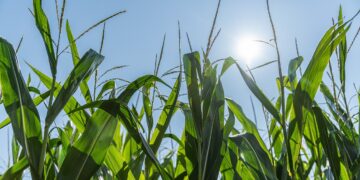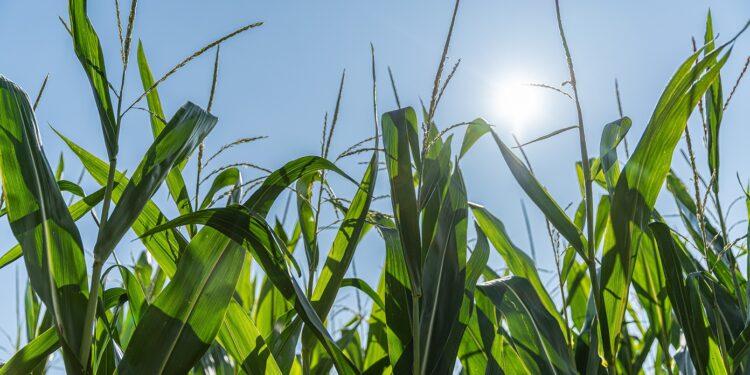Net sales increased by 32% – Strong growth in Brazil – Net sales forecast raised
The KWS Group (ISIN: DE0007074007) has increased its net sales by around one-third in the first half of fiscal 2021/2022. The key indicators EBITDA, EBIT and net income for the period were at the level of the previous year. Due to the strongly seasonal nature of the company’s business, the first half of the year (July 1 to December 31) contributes only about 25–30% of total net sales.
Net sales in the period under review rose by 32.4% to €431.6 (326.0) million. The growth was 31.3% on a comparable basis (excluding exchange rate effects). The key earnings figures were on a par with the previous year. The Turkish lira’s depreciation had a significant negative impact on the value of internal financial instruments (€ –6.0 million) and thus reduced operating result.
The free cash flow was € –128.5 million and, due to the increase in working capital, was below the previous year’s figure of € –57.3 million. Given the KWS Group’s strong growth, there was a significant increase in trade receivables and inventories.
“The high growth rates in the first half of the year are a vindication of our long-term corporate strategy geared toward innovation and a diversity of varieties,” said Eva Kienle, Chief Financial Officer of KWS. “In view of our strong business performance, we are pleased to announce, just halfway through the year, that we’re raising our annual guidance.”
In view of the positive business performance in the first six months, the Executive Board now anticipates that the KWS Group will grow its net sales for fiscal 2021/2022 as a whole by 9% to 11% (previously: 5% to 7%). The EBIT margin is still expected to be around 10% and in a range from 11% to 12% after adjustment for the noncash effects from purchase price allocations as part of company acquisitions. R&D intensity is expected to be in the range of 18% to 20%.
Overview of key figures
| in € millions | H1 2021/2022 | H1 2020/2021 | +/- | |
| Net sales | 431.6 | 326.0 | 32.4% | |
| EBITDA | -45.2 | -48.2 | 6.2% | |
| EBIT | -89.5 | -93.2 | 4.0% | |
| Net financial income/expenses | -27.3 | -24.9 | -9.6% | |
| Result of ordinary activities | -116.8 | -118.1 | 1.1% | |
| Income taxes | -31.5 | -31.8 | 0.9% | |
| Net income | -85.3 | -86.2 | 1.0% | |
| Earnings per share | in € | -2.58 | -2.61 | 1.1% |
Business performance of the segments
The Corn Segment grew its net sales significantly to €200.7 (131.8) million in the first half of the year. KWS’ core markets in South America, Brazil and Argentina, mainly contributed to that growth. The business in Brazil benefited not only from an increase in cultivation area and sales prices, but also from the growing market success of our variety portfolio. Since the segment does not generate the major part of its annual net sales until the third quarter (January to March) in the Europe and North America regions, the segment’s earnings were negative, as customary for the period under review, and totaled € –66.4 (–69.1) million. However, the operating result improved significantly in Brazil.
Net sales at the Sugarbeet Segment rose in the first half of the year to €60.9 (43.1) million. The increase is mainly attributable to earlier shipments in Germany and business expansion in North Africa. Due to seasonal reasons, revenue from sugarbeet seed is low in the first half of the year; significant net sales are not generated until the spring sowing season in the third quarter (January to March). The segment’s income was € –45.2 million and thus at the level of the previous year (€ –45.3 million). The Turkish lira’s sharp depreciation impacted the value of internal financial instruments (€ –6.0 million), which thus reduced the segment result.
Net sales in the Cereals Segment, which generates the predominant share of its annual net sales in the first half of the year, rose by 12% to €174.9 (€156.1) million, mainly due to strong growth in rapeseed seed. That business was boosted (by 41%) in particular on the back of favorable market conditions and an improved performance by the variety portfolio. Rye seed business also developed very strongly. While net sales from wheat seed likewise increased, revenue from barley seed declined due to unfavorable weather conditions. Given the strong growth in net sales and an improved product mix, the segment posted an above-proportionate increase in result to €62.3 (52.3) million.
Net sales at the Vegetables Segment fell to €21.9 (26.0) million, mainly due to high inventories at distributors in the wake of the COVID-19 pandemic. Business is expected to pick up in the second half of the fiscal year. As a result of the course of business and further expansion of the Business Unit Vegetables, the segment’s income fell to € –10.6 (–8.7) million. Excluding effects from the purchase price allocation as part of company acquisitions, the segment’s result declined to € –0.8 (4.1) million.
Net sales in the Corporate Segment rose to €5.1 (3.6) million. They are mainly generated from KWS’ farms. Since all cross-segment costs for the KWS Group’s central functions and research expenditure are charged to the Corporate Segment, its income is usually negative. The sharp decline in the segment’s results to € –52.9 (–39.1) million is mainly attributable to positive effects of €12.3 million from the valuation of US$-based financial instruments in the same period of the previous year.
The difference from the KWS Group’s statement of comprehensive income and segment reporting is due to the requirements of the International Financial Reporting Standards (IFRSs) and is summarized for the key indicators of net sales and EBIT in the reconciliation table below:
Reconciliation table
| in € millions | Segments | Reconciliation | KWS Group1 |
| Net sales | 463.4 | -31.8 | 431.6 |
| EBIT | -112.8 | 23.3 | -89.5 |
1 Excluding the shares of the equity-accounted companies AGRELIANT GENETICS LLC., AGRELIANT GENETICS INC. and KENFENG – KWS SEEDS CO., LTD.
Picture line press photo: Corn plants in sunlight
Picture author: KWS
Image source: Permission granted for use with reference to source for editorial articles about KWS. Commercial disclosure to third parties is not permitted.About KWS*
KWS is one of the world’s leading plant breeding companies. Around 6,000 employees in 70 countries generated net sales of around €1.3 billion in fiscal 2020/2021. A company with a tradition of family ownership, KWS has operated independently for 165 years. It focuses on plant breeding and the production and sale of seed for corn, sugarbeet, cereals, vegetables, rapeseed and sunflowers. KWS uses leading-edge plant breeding methods to continuously improve yield for farmers and plants’ resistance to diseases, pests and abiotic stress. To that end, the company invested more than €250 million last fiscal year in research and development.
* All figures exclude the companies carried at equity AGRELIANT GENETICS LLC., AGRELIANT GENETICS INC. and KENFENG – KWS SEEDS CO., LTD.
For more information: www.kws.com. Follow us on Twitter® at https://twitter.com/KWS_Group.
Contact:
Peter Vogt
Head of Investor Relations
Phone: +49-30 816914-490
peter.vogt@kws.com
Martin Heistermann
Senior Manager Investor Relations
Phone: +49-30 816914-341
martin.heistermann@kws.com
Sina Barnkothe
Corporate Communications
Phone: +49-5561 311-1783
sina.barnkothe@kws.com
KWS SAAT SE & Co. KGaA
http://www.kws.com






























